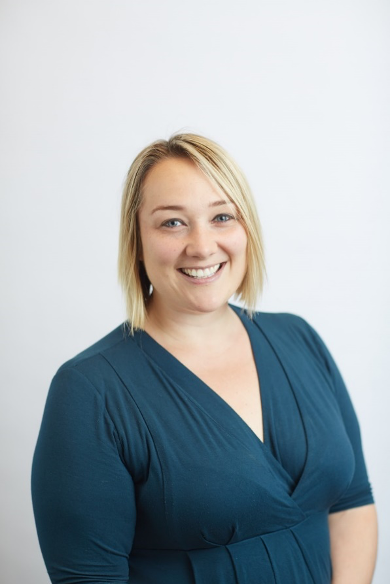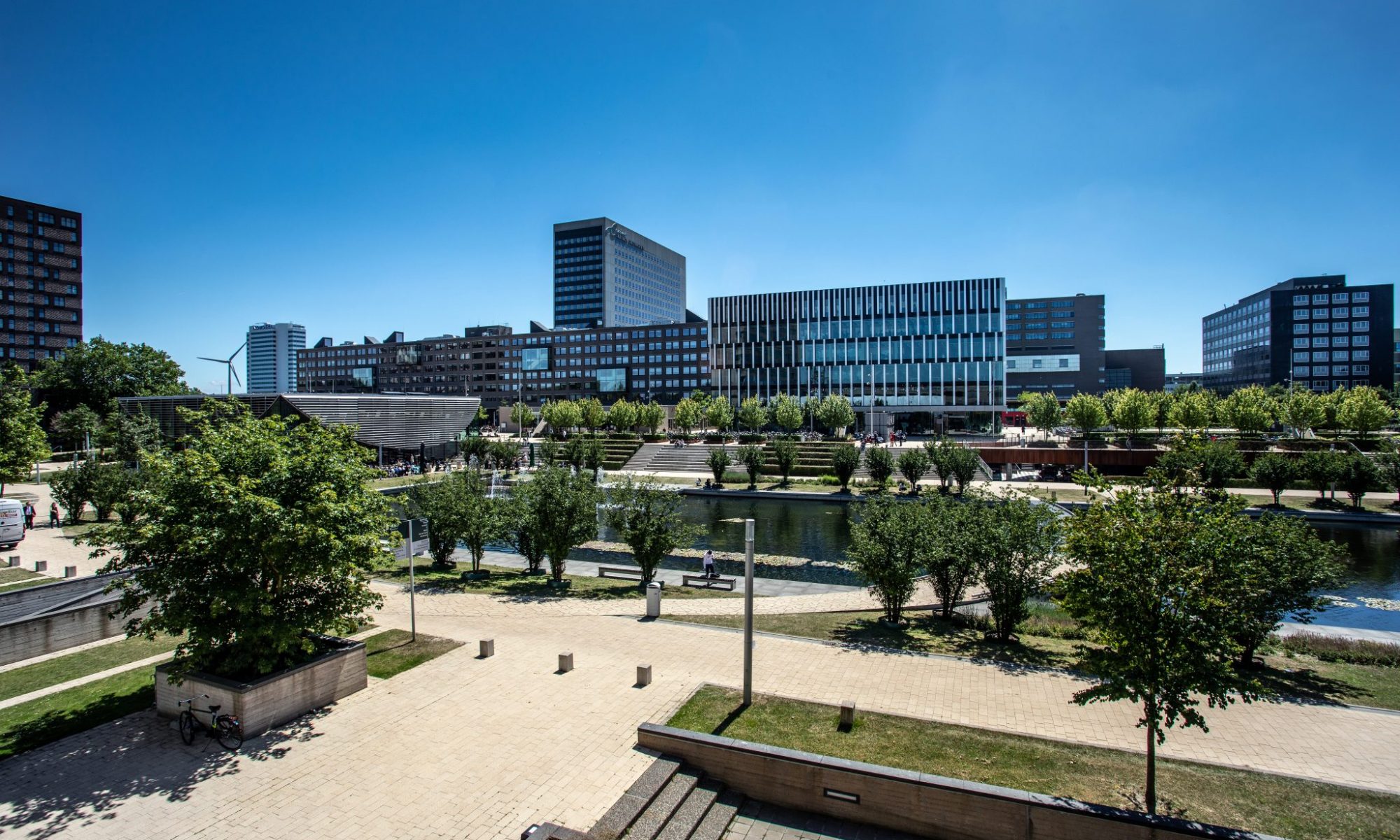You must login/create an account to view this content
Menu
General – Students and Graduates
You must login/create an account to view this content
How have Business Schools been working to move past the pandemic, both in the short and longer term? Kathleen Riach, Professor of Organisation Studies at Adam Smith Business School, offers her perspective
An initiative designed to help students at Adam Smith Business School, University of Glasgow transition to an online world of work has been rolled out to a wider audience of alumni and partners, says Professor of Organisation Studies, Kathleen Riach.
This is just one example of the School’s response to the challenges presented by Covid-19. In this interview, Riach also discusses the need – and opportunity – for the sector to learn lessons from the speed of response to the pandemic’s outbreak and outlines her belief that global and ‘inward’ strategies are not dichotomous ideas.
Business Impact’s fifth edition in print turned to the BGA network to canvas the collected thoughts of Business Schools based in India, Scotland, Puerto Rico, Poland, and the Netherlands to find out how they expect the pandemic to affect their outlook, strategy and offerings, both now and in the future. Given in June 2020, the below interview offers greater detail of Riach’s perspective on how the emerging situation and challenges had been approached at Adam Smith Business School to date.
The Covid-19 pandemic has, in many cases, led to a greatly increased uptake of online learning technology in business education. Although this has been a short-term necessity, does it present the sector with any opportunities in the longer term?
There is absolutely a need to think about this not as an erroneous year, but rather how we can build on some of the creative virtual teaching and learning practices that have sprung up all around our Business Schools.

Part of this is thinking about how we share what we are doing in lieu of the watercooler and corridor conversations we usually have with colleagues. It is also about ensuring that in the longer term we encourage the creation of ambidextrous learning assets that can enhance our students’ learning experiences in a number of settings, whether that is online, blended, or predominantly face to face.
I also think that it has made us more open to thinking about asynchronous and synchronous learning as not an either/or conundrum and that our curricula might want to be more flexible in this regard, which is a good thing given that more and more of our students are now balancing multiple roles as workers and carers as well as learners.
At the same time, I think there has been a renewed appreciation of what being physically present provides within an educational setting and that there is a qualitative aspect that is very difficult to replicate through other media. Moving forward, it provides us with an opportunity to think about how we use the valuable face-to-face time we have with learners to support and create a transformative learning experience.
Going beyond the pandemic’s immediate impact, have the year’s developments influenced your School’s strategy with regards to the use of online technology?
It’s really important not to underestimate the amount of upskilling and sheer number of hours of labour that has been put into this by faculty and professional staff, and that this effort is going to continue as we seek to create sustainable teaching and learning practices over the coming years. We need to consider this not simply as a matter of online technology, but also a matter of wellbeing and ensure we are promoting practical ways that all Business School staff do not carry the health hangovers of this period of intensive work into the future.
However, amid the exhaustion there has also been some excitement to see just how quickly at Glasgow – an institution that is more than 550 years old – we can change and adapt, which can sometimes be a challenge in any large organisation.
I also think it’s important that now the initial ‘rush’ of pivoting online has occurred, we have the opportunity to think a bit more strategically about not just online technology, but also how we can learn lessons from what was a very rapid response to a crisis. Strategically speaking, how might we be able to learn lessons surrounding quickly enabling and mobilising in ways that help us proactively address broader challenges in the business world and beyond?
The global financial crisis of 2008 has been linked to an increase in applications to Business Schools, as people decided the time was right to reassess their career goals and pursue personal and professional development. Do you think the Covid-19 pandemic could have a similar impact?
Any seismic global event is undoubtedly – and hopefully – going to make people reflect on what they do and why, and I think we will see an increased interest in people taking this time to recalibrate career goals.
What changes do you anticipate to the number and profile of those applying to programmes at your Business School over the coming three years? Do you envisage greater interest in any individual programme(s) on offer?
Apart from having to navigate the logistical challenges that may face our international students, what we see is that students are very aware of how we are proactively responding to and engaging with current events, from sustainability to global inequality.
Business Schools are often encouraged to play a greater role in their local and regional communities. Has Covid-19 inspired any new events, activities or initiatives with this in mind?
Across the School we have seen our staff leverage their existing research expertise to provide thought leadership and new research projects that speak directly to some of the economic, work-related and social issues that circulate around Covid-19.
We have also decided to offer our DigiGallus initiative – an online programme developed to help students transition to an online world of work during lockdown – to alumni and key partners with the Business School. The traction we got from students in the School with DigiGallus has also provided the opportunity to develop an online mentoring scheme between our students and members of the local community who are shielding. We are hoping that this not only provides a service to local residents to navigate online living, but also gives students the opportunity to develop skills in leadership and intergenerational learning during the Summer break when many of their internships and workplaces are suspended or remain closed.
Leaving aside Covid-19, which single new programme, course, or initiative are you most excited about and why?
We just launched our MSc Financial Technology programme which is an interfaculty postgraduate degree with computing science, and law. Students from a variety of disciplines learn practical and conceptual skills, then have the opportunity for either a six-week industry placement or a startup pathway in an incubator developing an investment plan. It’s exciting to see the potential.
But beyond this, what we have seen in Covid-19 is a renewed thinking about how all our course provision is going to respond to the seismic changes we see in the world, and teaching staff are taking this opportunity to think about how we make sure that the skills we develop and way we teach is relevant to the world we are now in.
This might sound a rather obvious point, but as academics we are also all voracious learners, and listening to the different types of conversations with colleagues about exploring and developing provision in our courses that will support and equip our students to face their future worlds of work is pretty invigorating.
Do you think Business Schools will need to focus more inwardly (and therefore less ‘globally’) than they have been in their teaching in order to address industry needs post-Covid-19? If so, could this have an impact on your School’s international exchange and partnership options?
There are certainly practical challenges and possibly uncomfortable conversations that have to take place surrounding what it means to be a global Business School. Covid-19 has perhaps accelerated and brought to the fore a lot of the concerns many already had about the ways and means we think about being international and paying attention to all of our key stakeholders.
However, I don’t think global and inward strategies are dichotomous ideas. Rather, it is about thinking what our students and ourselves achieve from initiatives such as international exchanges and partnerships in their current form, and thinking creatively about how we can maintain and strengthen these aspects in a variety of ways, as well as considering how these competencies and benefits can be garnered through a more intimate engagement with, and contribution to, local economies.
For example, at a university level, our institution is currently thinking about civic engagement as a strategic priority and partnering with local and national government on very practical initiatives. One of the things that struck me when I came to University of Glasgow was that it certainly is ‘home to the world’ in many ways and that students who come here very quickly adopt the city. So, I think it’s more a case of developing these relationships further, rather than an ‘inward’ turn.
Do you anticipate Covid-19, and related issues, influencing course offerings within the programmes on offer from your School?
In many ways, Covid-19 has only further legitimised the direction we were already moving in terms of our provision. We have recently become advanced signatories of PRME and with COP26 being hosted in Glasgow, we already had the momentum of thinking about a different ecology of business education. At the same time, as a research-led School, provision is a ground-up process and courses are led by the expertise of faculty. I think it’s very important that we don’t simply begin introducing reactionary courses that speak directly to a theme per se, but rather think about what capabilities and skills students will need as a result of these global changes and how we can best foster these in our curricula.
There is an argument that the economic challenges that Covid-19 will bring represent a huge and much-needed opportunity for Business Schools to reinvent their value proposition for the better. What would you most like to see change in the business education industry?
We must acknowledge that this has been – and will continue to be – a devastating event for the world that has disproportionately affected certain parts of the population. But using it as a productive moment to think how we can do something is vital.
Business Schools collectively are a powerful force and thinking not only about our multiple accountabilities but also our potential to be incubators for change is so important, especially as we are at the beginning of the United Nations’ ‘Decade of Action’. In my role, one of the aspects we are going to focus on is how we ensure stewardship is central to the curriculum. If we really want to support our students becoming change agents in their future workplaces and the economy more broadly, then we need to ensure they don’t feel they are passive or mute agents in the current systems and ways of thinking.
Kathleen Riach is Professor of Organisation Studies at Adam Smith Business School, University of Glasgow, Scotland, having previously held faculty and visiting positions in Australia, Sweden and Germany. She is the School’s inaugural lead of Responsible and Sustainable Management, with her own research focusing on organisational age and gender inequality.
Inter Metro’s Antonio Fernós Sagebién looks at how the Puerto Rican institution’s offerings and plans for the immediate future have been affected by the pandemic
How will Covid-19 affect Business Schools’ outlook, strategy and offerings, both now and in the future? Business Impact’s fifth edition in print turned to the BGA network to canvas the collected thoughts of Business Schools based in India, Scotland, Puerto Rico, Poland, and the Netherlands to find out.
In this third part of our serialisation online, Antonio Fernós Sagebién – Associate Professor at the Inter-American University of Puerto Rico, Metropolitan Campus (Inter Metro) – shares his views on the awaited ‘new normal’, changes to programme structures, and financial challenges for part-time students that work full time. Please note that this interview was given in May/June 2020.
The Covid-19 pandemic has, in many cases, led to a greatly increased uptake of online learning technology in business education. Although this has been a short-term necessity, does it present the sector with any opportunities in the longer term?
Yes, my university has a long-standing [history] of 100% online programmes (mostly courses that are 75% asynchronous) but now we have had to move [programmes with] 100% presence to hybrid (courses that are 100% online but that are at least 25% synchronous) courses.
As such, 100% of our faculty is now certified by [edtech company] Blackboard and, in our 100% online courses offer, existing courses are being refreshed with new material and modules and new courses are being created.
Going beyond the pandemic’s immediate impact, have the year’s developments influenced your School’s strategy with regards to the use of online technology?
Yes, faculty and students are now required to use online library resources (for both databases and periodicals/journals).
What will be the core challenges for the business education sector in recruiting new students (at both undergraduate and postgraduate level) over the coming three years?
Our students and my institution take pride in our very low teacher-to-student ratio, along with having personalised class scheduling processes. We now will have less degrees of freedom on our courses scheduling offer.
As most of our MBA students are employed full time, if any specific industry or sector gets affected or labour force is displaced, these students will have no source of funding.
Leaving aside Covid-19, which single new programme, course, or initiative are you most excited about and why?
New concentration in business analysis and a new master’s degree (non-MBA) specialised in banking administration.
Do you think Business Schools will need to focus more inwardly (and therefore less ‘globally’) than they have been in their teaching in order to address industry needs post-Covid-19? If so, could this have an impact on your School’s international exchange and partnership options?
Yes, indeed. As part of the US, our borders/immigration policies are the same as those of the US. It is always a challenge to get approval on visas for international students in Puerto Rico.
Do you anticipate Covid-19, and related issues, influencing course offerings within the programmes on offer from your School? (E.g. new modules, or new approaches within existing modules)
Yes, financial hardship from new and existing students will force us to create new delivery channels that are not yet validated. Exploring is a part of innovation and students, faculty and administrators are looking for a return to a ‘new normal’ that we have yet to know. Quite possibly, MBA courses will be [start to be] offered in a bimonthly cycle modules.
However, our position is that until we meet this ‘new normal’, we make no sudden moves.
You must login/create an account to view this content
RSM Dean, Ansgar Richter, on how Covid-19 has accelerated the School’s plans to make technology more prominent in its thinking and why Business Schools must avoid turning inwards
How will Covid-19 affect Business Schools’ outlook, strategy and offerings, both now and in the future? Business Impact’s fifth edition in print turned to the BGA network to canvas the collected thoughts of Business Schools based in India, Scotland, Puerto Rico, Poland, and the Netherlands to find out.
In this second part of our serialisation online, Ansgar Richter – Dean of Rotterdam School of Management, Erasmus University (RSM) – discusses how the School’s online strategy has evolved, how the crisis has given increased importance its sense of citizenship, and the dangers of ‘turning inwards’.
***
The Covid-19 pandemic has, in many cases, led to a greatly increased uptake of online learning technology in business education. Although this has been a short-term necessity, does it present the sector with any opportunities in the longer term?
Most certainly. We have learned a lot over the past months. The turnaround has been quick and effective, and teachers overall are positive. In a post-Covid-19 area, RSM will indeed move to a blended learning approach, and also fully online programmes – but only in those areas where we have unique strengths over what others offer.
Going beyond the pandemic’s immediate impact, have the year’s developments influenced your School’s strategy with regards to the use of online technology?

In the sense that the evolution has been quicker than expected, yes – but the developments were taking place already. For example, we had already established a learning innovation team a number of years ago, and Erasmus University – of which RSM is an integral part – set up an education lab (which includes a television-grade studio). These investments are now paying off, and we plan to accelerate them going forwards. Technology will feature much more strongly in our strategy.
The global financial crisis of 2008 has been linked to an increase in applications to Business School, as people decided the time was right to reassess their career goals and pursue personal and professional development. Do you think the Covid-19 pandemic could have a similar impact?
We definitely saw an increase in applications for our pre-experience programmes for the current academic year, in particular for our MSc programmes. For the post-experience programmes, it is too soon to tell – they will only start next January, but we have no indications of declining demand so far; on the contrary!
I think there are a number of things at play here – students’ desire to reassess their career goals being one of them.
What changes do you anticipate to the number and profile of those applying to programmes at your Business School over the coming three years? Do you envisage greater interest in any individual programme(s) on offer?
One of our flagship programmes is the MSc in global business and sustainability. This programme has already been hugely successful, and we are now seeing demand for this programme growing further. Our MSc in business analytics is also set for further growth.
What will be the core challenges for the business education sector in recruiting new students (at both undergraduate and postgraduate level) over the coming three years?
There is no doubt that international student recruitment has become much more competitive in recent years, at least until the onset of the Covid-19 pandemic. One challenge that all of us in the sector are facing is how to navigate the rapidly changing political landscape – factors such as visa and right-to-work policies come into play here, but also the rise of authoritarian or nationalistic governments in several countries that show no respect for the values that academic institutions around the world stand for: open exchange, freedom of thought and freedom of expression, equality, and the dignity of every human being regardless of factors such as colour, gender, creed or sexual orientation. I believe students will choose their place of study on the basis of these factors, too.
Another challenge that a lot of Business Schools will have to grapple with relates to pricing. In many universities in the UK, the US and Australia, Business Schools are often the cash cows of the universities, whose income is used to cross-subsidise other programmes. Effectively, these institutions have made the study of business administration too expensive, raising concerns about whether Business Schools contribute to inequality. I believe there needs to be a recalibration.
Business Schools are often encouraged to play a greater role in their local and regional communities. Has Covid-19 inspired any new events, activities or initiatives with this in mind?
We offer free webinars on a regular basis which are very well attended. During the crisis, we have also undergone a Business School Impact System (BSIS) assessment exercise, which has demonstrated the impact that RSM has had and continues to have in our region, the Rotterdam and greater Randstad area. This initiative was in the making before the pandemic, but the crisis has raised the importance of our citizenship in this area.
Leaving aside Covid-19, which single new programme, course, or initiative are you most excited about and why?
In the undergraduate programmes, we are rolling out an initiative called ‘Boost the Bachelor’, which will vastly increase flexibility, provide students with greater choice, and transform the student experience. We are also developing new interdisciplinary programmes with other schools within Erasmus University – for example with our medical school (Erasmus Medical Centre) – and with other institutions, such as the Technical University of Delft.
Do you think Business Schools will need to focus more inwardly (and therefore less ‘globally’) than they have been in their teaching in order to address industry needs post-Covid-19? If so, could this have an impact on your School’s international exchange and partnership options?
‘Turning inwards’ is a danger that we absolutely need to avoid. Some partner institutions are unable to accept international exchange students at this particular time, so the value of having a large network of partner schools to choose from becomes even more apparent. What has become more problematic are highly rigid programme structures, where you rely on one particular partner, or where a residency can only take place within a narrowly defined time window. So, you need greater flexibility, but not to turn away from the idea of international exchange.
Do you anticipate Covid-19, and related issues, influencing course offerings within the programmes on offer from your School?
Yes, we will have a more blended approach. Whether content will change remains to be seen – we have adopted our teaching in line with our mission to be a force for positive change in the world and this is a broad response to current global issues in any case.
There is already an argument that the economic challenges that Covid-19 will bring represent a huge and much-needed opportunity for Business Schools to reinvent their value proposition for the better. What would you most like to see change in the business education industry?
A large proportion of the jobs that will be done in 2030 haven’t been invented yet. Similarly, the meaning of ‘management’ will be totally different in the future, from what it is today. Tomorrow’s managers will need to be incredibly comfortable with constant change. We will need to prepare them for that. The Covid-19 crisis is providing much-needed focus on what’s really important in business education. We educate our students not only for the purpose of making lots of money, but also to enable them to be a force for positive change in society at large.
Ansgar Richter is Dean of Rotterdam School of Management, Erasmus University (RSM). Before joining RSM, he served as Dean of Surrey Business School in the UK.
Portions of this interview feature in ‘Moving management education past Covid-19’ – the cover story in the fifth edition of Business Impact’s print magazine.
You must login/create an account to view this content
How has the management education landscape been affected by Covid-19, and how are Business Schools working to move past the pandemic, both in the short and longer term? Insights from Collegium Humanum-Warsaw Management University, Poland
In spite of the shattering human cost and the innumerable challenges presented by Covid-19, the management education sector has made positive moves over the past six months which promise not only to facilitate management education’s recovery from the pandemic, but also to aid its progression in the face of evolving technologies and student demands in the third decade of the 21st century.
Business Impact’s fifth edition in print turned to the BGA network to canvas the collected thoughts of Business Schools based in India, Scotland, Puerto Rico, Poland, and the Netherlands to find out how they expect the pandemic to affect their outlook, strategy and offerings, both now and in the future. Here, we look in more detail at the thoughts of Paweł Czarnecki, Provost at Collegium Humanum-Warsaw Management University in Poland.
The Covid-19 pandemic has, in many cases, led to a greatly increased uptake of online learning technology in business education. Although this has been a short-term necessity, does it present the sector with any opportunities in the longer term?

When it comes to the strategy of educational activities in the area of business here at Collegium Humanum, we never planned online education because our education philosophy rests largely on the values associated with the creation of networking opportunities and personal relationships among students. In the long run, this translates into their further professional success.
The pandemic situation has, however, forced us to move to the online education sector. From research and observations among our students, we have noticed considerable interest in this form of education and an increased commitment to acquiring knowledge. I am therefore convinced that online education will in no time significantly support traditional forms of education. Yet, one must still admit that online education cannot and will never replace direct contact and meetings with people.
Going beyond the pandemic’s immediate impact, have the year’s developments influenced your School’s strategy with regards to the use of online technology?
We do not know what the situation will be in the coming months. I do hope that the pandemic will be only a memory. We have, however, drawn positive conclusions from this difficult experience, and yes, we will support traditional education with online education technologies. We will also expand our virtual university systems.
The global financial crisis of 2008 has been linked to an increase in applications to Business School, as people decided the time was right to reassess their career goals and pursue personal and professional development. Do you think the Covid-19 pandemic could have a similar impact?
During the Covid-19 pandemic, we have recorded increased recruitment levels for MBA, DBA and LLM studies. Perhaps this was due to the lockdown [restrictions] necessitated by the sanitary regime which left our candidates with more time to spare for education. This trend still continues.
What changes do you anticipate to the number and profile of those applying to programmes at your Business School over the coming three years? Do you envisage greater interest in any individual programme(s) on offer?
We strive to adapt our educational offer to the individual needs of various candidates for business studies. Individual organisation of studies, tutoring as well as mentoring activities are all standard services available to students at our university. We assume that, over the next three years, the number of students on MBA and DBA courses will increase.
What will be the core challenges for the business education sector in recruiting new students (at both undergraduate and postgraduate level) over the coming three years?
The main challenge will be to create an educational offer that will meet the current and potential needs of the labour market. Hence, our study programmes are formed in constant consultation with our social and economic environment as well as its stakeholders. We work to the understanding that our study programmes should educate and equip our graduates with practical preparation for professional roles. The challenge is therefore to provide practical education that is implemented by a truly experienced cohort of practitioners and experts.
Business Schools are often encouraged to play a greater role in their local and regional communities. Has Covid-19 inspired any new events, activities or initiatives with this in mind?
During the pandemic, our university implemented a legal aid project and developed a textbook related to the changes in legal regulations in view of the enforced sanitary regime and other restrictions as well as changes brought upon us by the broader epidemic regulations.
We published this on our social media and on our website. A professor of our university has also been giving daily advice, in Polish and English, on matters related to Covid-19 and the pandemic with the largest television broadcaster in Poland (TVP).
Leaving aside Covid-19, which single new programme, course, or initiative are you most excited about and why?
We have launched a completely online MBA programme, which proved, and is still, very popular.
Do you think Business Schools will need to focus more inwardly (and therefore less ‘globally’) than they have been in their teaching in order to address industry needs post-Covid-19? If so, could this have an impact on your School’s international exchange and partnership options?
As long as there is an epidemic threat and related sanitary regime in place, there will be inevitable restrictions related to the mobility of students and the teaching staff.
In the long run, however, one cannot run successful business education programmes without exchanging experiences or involving external partnerships. Partners not only bring additional educational quality to the study programmes, but they also influence the prestige of the studies.
Do you anticipate Covid-19, and related issues, influencing course offerings within the programmes on offer from your School?
It seems viable that study programmes might have to be integrated with courses that will deal with various competencies that relate specifically to crisis management, especially when it comes to health emergency situations. We will integrate such modules with programmes of all types of studies.
There is already an argument that the economic challenges that Covid-19 will bring represent a huge and much-needed opportunity for Business Schools to reinvent their value proposition for the better. What would you most like to see change in the business education industry?
In the business education industry, it is particularly crucial to educate in the field of practical functioning of businesses according to the latest knowledge and market trends. This requires constant tracking of the market trends and consulting the study programmes with different business practitioners so that to adapt them to the current needs.
Paweł Czarnecki is Provost at Collegium Humanum-Warsaw Management University, Poland. A Professor of Social Sciences, he is also Member of the Marketing Committee at the Polish Olympic Committee, Professor at the Technical University of Košice (Faculty of Aviation) in Slovakia, and Member of the Supervisory Boards in Wroclaw Technology Park and Business Solutions in Warsaw.
You must login/create an account to view this content
You must login/create an account to view this content
Given management education’s importance to the evolution of Russia’s economy, the MGIMO School of Business and International Proficiency is training a new type of manager, says its Director, Angelika Mirzoeva. Interview by David Woods-Hale
In a landscape that is effectively defined by disruption and change, preparing leaders and managers to not just ‘cope’ with volatility, but to also make an impact, is the overarching challenge shared by Business Schools the world over.
Business Impact caught up with Angelika Mirzoeva, Director of the MGIMO School of Business and International Proficiency, to find out how Schools could be doing more than just reacting to this environment and instead, help to set the scene themselves. Her advice: innovate, collaborate and diversify wherever you can…
Why is management education important in Russia and what is the value it brings to your community?
The global community is faced with new challenges, which will define the framework of business education both in Russia and beyond.
Today’s management education is not simply a process of consuming knowledge. It is a creative process involving both teachers and students. Managers that are able to think outside the box are in demand and, in turn, the demand for business education is becoming more focused and stringent.
The responsibility for finding the right solutions to modern challenges should lie with leaders who are highly qualified managers those who are able to see what lies ahead, and to transform and improve the present in line with this forward-thinking vision.
Training these leaders of the future requires a revised system of business education. It becomes lifelong learning, implying complex training in science and humanities, providing students with knowledge, and, most importantly, developing certain beliefs and values in them, and a socially responsible code of conduct in a professional environment.
Given the importance of management education in forming a new economy in Russia, the MGIMO School of Business and International Proficiency trains managers of a completely new type: those who possess fundamental knowledge, aim to work in an innovative way, and take effective management decisions.
How healthy is the current market for business education in Russia, and the surrounding region, and what are the main challenges?

Business education in Russia has aroused public interest for almost two decades. The market is not homogeneous and, in different segments, it develops differently.
I would point out two main challenges for Russian business education. First, business education is often confused with training, short programmes, and masterclasses. It should be noted that business education is a large market and constantly changing. The other challenge is the imbalance between practice and theory in the curricula, and lack of educational innovations.
The biggest hurdle facing our business programmes is not retaining high-quality staff or recruiting sufficient numbers of students – the problem is innovation in the classroom. Today’s most effective managers are the ones who are able to organise interaction between various groups, find additional resources and attract partners. These are the people we see apply to Business Schools when seeking out new competencies.
I believe that over the coming two years the MBA/EMBA market will continue to develop steadily in certain segments. Whether the economic growth of the labour market is high or low, demand for MBA programmes will remain. Specialists planning to reach a new level of professional development will have no alternatives.
What type of people study at your School and what have graduates gone on to do in the local region and beyond?
The target audience is top and middle managers, business owners, people with successful careers, and ambitious people with leadership potential. An average MBA student at our School is aged 34, has higher education (mostly specialist level) and between eight and 13 years of experience; the bulk of students are Russian citizens. Gender breakdown has not changed significantly over the past three years. In 2019, it was 56% men, 44% women.
We do not target a specific geographic location; instead, the programmes are made with the global market in mind.
The Business School’s students include those studying PhDs, master’s, specialist degrees, and bachelor’s, and more than nine out of 10 enrolled students (91%) successfully complete the MBA programme and achieve their diplomas. Our graduates become members of the MGIMO Trusteeship Council, and some of them even go on to become visiting lecturers at the School.
In terms of jobs, many graduates enjoy greater career opportunities with government agencies, both in Russia and abroad. Established entrepreneurs, meanwhile, might use the knowledge acquired to expand and diversify their businesses, while others use it to begin building their own companies.
What do you think makes your portfolio of programmes stand out from others that are available in Russia and the surrounding region?

Our programmes have an international component. Moreover, we have a number of very popular specialisations, which meet current trends and requirements.
To make the MBA programme truly international, we seek to help students understand the styles and methods of management used in different cultures and parts of the world, citing examples and studies of diversity.
Diverse concepts and styles of management are made part of the curriculum by mapping leadership development; holding joint sessions with students from other groups and years; citing international examples in virtually all courses; and organising external modules and internships at international Business Schools.Today’s world needs applied knowledge first and foremost, and our School strives to make the knowledge we provide to be of actual benefit to our students, the economy, and the general public.
The School’s ties to industry are also a differentiating factor. Russia’s largest companies, such as OJSC Russian Railways and the Ural Mining and Metallurgical Company, are among our corporate clients. We also have agreements with other leading Russian companies, as well as those overseas, in terms of internship programmes, outreach units, and graduation projects for students of our MBA programmes.
Can you provide an example of how your School is using forms of new technology to meet the needs of its students?
The Business School seeks to use innovation to boost its students’ personal growth and learning outcomes. Since 2016, the School has been recording and publishing its distance courses on Coursera. MBA and EMBA students can access these Coursera courses for free, giving them the extra option of distance learning.
Currently, Coursera contains 13 of the School’s courses and one specialisation. We believe this project has been a success and opens opportunity for outstanding potential to be used, especially in the context of global digitisation. Online learning and technology, it seems, will impact heavily on the executive education space in the coming years, revolutionising the way we approach the development of our personal and professional skills. Business Schools always need to look ahead because they educate leaders and decision makers for a fast-changing world that is being greatly disrupted by the digital era.
Which single new programme, course, or initiative are you most excited about and why?
The School has developed a new MBA specialisation recently, in strategic marketing and management.
Elsewhere, we have started combining our use of distance and multimedia learning methods with traditional methods (lectures, seminars, role plays, trainings, and masterclasses) and are working actively on developing blended MBA distance programmes. As for training areas, we continue to expand our programmes in digital economy, entrepreneurship and international business, developing markets, and the fashion industry.
Does your School engage with businesses, government and other public-sector organisations in your region?
Public and private sector representatives are partners, as well as corporate customers and employers of our graduates.
In addition to this, we involve employers in discussions relating to the admissions office, the final certification commission, the selection of the final project topics, external modules, and internships. Employers are eager, for example, to set the challenges each student has to address as part of their final project. Employers are also members of the School’s Expert Council, and function as professors – wherein senior managers of companies come to us to deliver lectures and masterclasses.
We have also worked in partnership with Russia’s Ministry of Agriculture to open a new department focused on global agricultural markets and foreign economic activity in the agricultural sector, and to launch a vocational retraining programme and a global agricultural markets master’s programme. The School’s Odintsovo branch, meanwhile, has opened a base department of the Ministry of Housing and Communal Services of Moscow Region to explore urban infrastructure and territorial management.
Further examples of industry collaboration include: launching a new advanced training programme in political management in co-operation with the consulting company, Baikal Communications Group; coordinating the discussion of an idea to set up the Expert Center for procurement activities in the UN system together with UNIDO (United Nations Industrial Development Organisation); and launching an open course in sports marketing together with our partner, VTB United League, and in conjunction with the School’s sports diplomacy master’s programme.
How is the School working to boost the employment prospects of its graduates?
Through a culture of entrepreneurship, open-mindedness, non-conformism, pragmatism, and leadership, the School has trained managers who are experts in the challenges posed by business. Working with companies to help them in their search for interns, apprentices and future executives, we maintain close ties with the corporate world to co-design teaching and anticipate graduates’ future careers.
In today’s fast-changing and complex world, talent acquisition is key. Businesses need high potential talent that possess a global mindset and are ready to make an impact from day one. Our aim is for MGIMO students and graduates to deliver just that. For this, the School of Business and International Proficiency, in conjunction with MGIMO career centre, hold coaching sessions, networking events, and job fairs.
The career centre is designed to support international-profile professionals and their employment goals. Among its partners are major Russian and international companies.
MGIMO University’s traditional job fair takes place twice a year and gathers representatives of Russian and international companies. About 25 employers and more than 1,000 students have taken part in the poster session.
What plans does your School have for the next three years and what developments would you like to see?
To further its international partnerships, the Business School has defined a number of core strategic goals for the next three years.
These include: adding to the learning process’ international dimension and creating an international atmosphere at the School; improving integration in international education and research networks through joint research projects involving international professors and experts; creating an infrastructure and institutional conditions for greater student, professor, and researcher mobility; opening joint MBA programmes with ADA University in Azerbaijan and Cambridge Judge Business School in the UK; and expanding the exportation of educational services (such as external MBA modules for the UK’s Henley Business School). Aside from these objectives, the need to be innovative and creative in EMBA programme delivery has been a compelling finding among our recent experiences. This is a market trend to which we have to adapt, in terms of our teaching ideals and objectives. Indeed, the focus on innovation and creativity in EMBA delivery is important to us and we are keen to differentiate our offerings in an increasingly crowded market.
Our current focus for developing EMBA programmes is on increased ‘flexibility’ and adapting to the way students learn. In this, it is worth noting that there could be a link between being innovative and creative in EMBA delivery, and adopting and upgrading digital technology. This innovation is underway and continues; specialist EMBA programmes are a growing trend. Of the current specialist EMBA programmes on offer, the most popular are in the fields of finance, innovation and entrepreneurship.
Anzhelika Mirzoeva is the Director of MGIMO School of Business and International Proficiency in Moscow, Russia.
This article was originally published in Business Impact magazine, issue #4 (June 2020)










